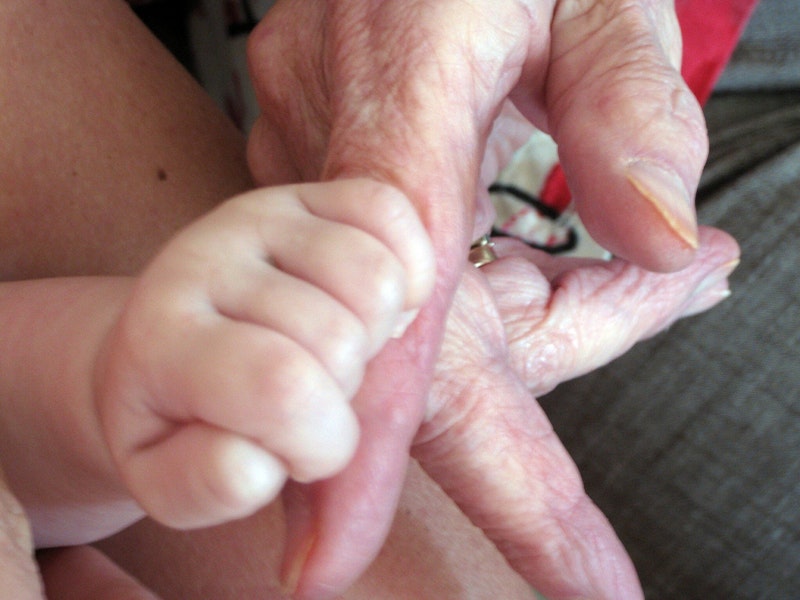Despite the set back reformists suffered when portions of the new Arizona immigration act were struck down as unconstitutional, the debate over illegal immigration in this country continues at a frenzied pace. A particular thorn in the side of anti-illegal immigrant forces is birthright citizenship, a constitutional guarantee under the 14th Amendment that anyone born on US soil, whatever the citizenship of his or her parents (diplomats and foreign dignitaries excepted) is a US citizen.
According to popular conjecture, pregnant illegal immigrant women calculatingly slip into the United States every year by the thousands to give birth. Automatic US citizens by virtue of the 14th Amendment citizenship clause, the new babies serve as “anchors” for their parents and the various members of their extended families. Many opponents to birthright citizenship believe these “anchor babies”, a pejorative term used to describe children who obtain citizenship in this manner, are a threat to the social and moral fabric of this nation.
How these children constitute a threat, however, is not precisely clear. While it cannot be denied that pregnant illegal immigrant women have given birth in this country, the number that have come here as part of a calculated scheme to gain US citizenship for themselves or their progeny has never been counted. A recent report by the Pew Hispanic Center, for example, maintains that 340,000 of the 4.3 million children born in the US in 2009 were the offspring of unauthorized immigrants. Given these figures were reached by comparing the number of specific survey takers to a demographic estimation of legal foreign-born residents, the number of children born to illegal immigrants reported by Pew is at best an approximation and not an accurate count. Even if it were, the number of births to illegal immigrant parents is a relatively small percentage of the total births reported for that year. Pew's figures, moreover, do not divulge how many of 340,000 estimated births were part of a parental scheme to gain an anchor in the US.
A child born to unauthorized immigrant parents in fact does little to anchor the family legally in the US. Under current immigration law, such a child cannot sponsor his or her parents until reaching the age of 21. Parents once illegally in the county, furthermore, are generally banned for life from again becoming legal immigrants even when they have a sponsor. Finally, despite having a child with US citizenship, unauthorized immigrant parents are routinely deported, unless doing so exercises an extreme hardship upon the child.
Notwithstanding the lack of proof anchor babies exist or can legally anchor their relatives to this country, opponents of birthright citizenship continue to insist they constitute a threat to our society. On an August 10, 2010 radio broadcast, CNN host Anderson Cooper conducted an interview with Texas State Representative Deborah Riddle (R), an opponent of birthright citizenship, about “terror babies.” According to Riddle, pregnant women are coming to the US as tourists to have babies, and then go back home, “with the nefarious purpose of turning them (the babies) into little terrorists, who will then come back into the US and do us harm.” Doing this, states Riddle, is part of an organized terrorist element that will cost lives. When pressed by Cooper, however, Riddle could provide little substantiation for her claim, saying only her information about the alleged terrorist plot came from an unknown, former FBI agent. To date, there is little evidence to suggest that terror babies actually do exist.
Reality or not, the movement to rid the country of anchor babies continues to gain force, as birthright citizenship opponents attempt to either modify the 14th Amendment of the Constitution, or by-pass its strictures through legislation. Amending the Constitution is a long shot, for doing so is a lengthy process that requires passage by both Houses of Congress before going on to the 50 states for approval. Legislation to by-pass birthright citizenship, such as the Citizenship Reform Act of 2007, has been proposed from time to time, but never passed. Despite these failures, however, opponents of the practice such as Senator Lindsay Graham (R) of South Carolina continue to press the issue.
Before pressing forward with their initiative, opponents should consider the effect that doing away birthright citizenship will have on the country. Ending birthright citizenship would punish the children for the crimes of their parents, a result in direct contradiction to the ideals of freedom and equality enshrined in our Constitution. A state-less class of children, with murky legal status and questionable rights and obligations could emerge, having little reason to profess loyalty to the land in which they were born. Their unknown legal status could increase the economic and legal burden on governmental resources already stretched thin.

